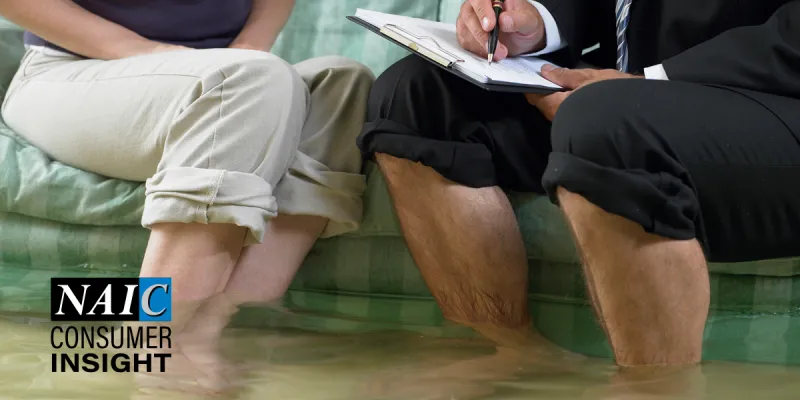
6 Questions to Ask Your Agent About Flood Insurance
Understanding flood insurance isn't easy. Everyone's risks and needs are different. Talking through options with an agent should help you choose a policy that's a good fit. Before you have the conversation, here are some questions to consider asking.
- Do I need flood insurance (Does my homeowners insurance cover flood)?
Where it rains it can flood. Some mortgage lenders require you to have flood insurance when you buy your home. But even when flood insurance isn't required, your risk is real for flooding even if you don't live near a body of water. Just 1 inch of water can cause $20,000 in damage to your home. If you live in a 100-year floodplain, there's more than a 25% chance that you'll be flooded during a 30-year mortgage. In that period, you are 27 times more likely to experience a flood than have a fire. - Do I need flood insurance if I rent?
Property owners and renters should consider buying flood insurance. While damage done to a physical structure would be the property owner's responsibility, the renter's personal property would not be covered. You would need flood insurance to protect your personal property. - Do I live in a high-risk flood zone?
The Federal Emergency Management Agency (FEMA) flood map shows your flood risk. Risk levels are divided into three categories. High-risk areas have at least a 1% chance of flooding each year. Homeowners in these areas with mortgages from federally regulated or insured lenders are required to buy flood insurance. Moderate to low-risk areas have less than a 1% chance of flooding each year, but there is still a possibility the area could flood. Flood coverage isn't required in these areas, but it is recommended. Some mortgage lenders still require you to have flood insurance in non-high-risk areas. Undetermined risk areas are areas where flood-hazard analysis has yet to be conducted, but risk still exists. - What are my coverage options?
Flood insurance is a separate coverage that you can purchase through the National Flood Insurance Program (NFIP), which FEMA manages. You may also have options from a private insurer.
If you choose a private flood insurance policy, shop around and compare coverage and premiumsbefore you decide which policy to buy. - How long will it take to get flood insurance?
It is important to note that an NFIP insurance policy doesn't go into effect immediately. NFIP policies have a 30-day waiting period unless a policy is bought at the same time as a newly purchased home. Some private companies may have a shorter waiting period. It's worth asking your agent about the difference so you can weigh your options. - How do I file claim?
Your agent should be able to walk you through the process for filing a claim. Most insurance companies have a time requirement for reporting a claim, so contact your agent or company as soon as possible. Your state insurance department can help you find contact information for your company if you cannot find it.
About the National Association of Insurance Commissioners
As part of our state-based system of insurance regulation in the United States, the National Association of Insurance Commissioners (NAIC) provides expertise, data, and analysis for insurance commissioners to effectively regulate the industry and protect consumers. The U.S. standard-setting organization is governed by the chief insurance regulators from the 50 states, the District of Columbia and five U.S. territories. Through the NAIC, state insurance regulators establish standards and best practices, conduct peer reviews, and coordinate regulatory oversight. NAIC staff supports these efforts and represents the collective views of state regulators domestically and internationally.
